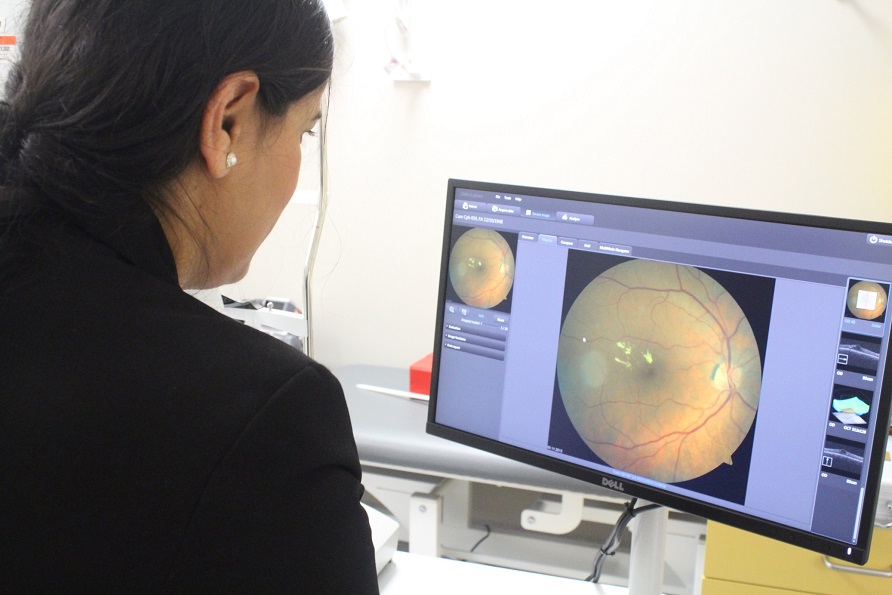In a “win-win’’ breakthrough, medical experts at Campbelltown Hospital are using artificial intelligence (AI) to identify health problems in patients with diabetes quicker than ever before.
For patients it means fewer visits to the hospital to find out if they have diabetes or eye problems.
The endocrinology and ophthalmology teams at the hospital have joined forces to provide a suite of health checks for the early identification of eye problems and other complications which are common in patients with diabetes.
“Eye testing in the diabetes clinic reduces the number of visits for patients and improves the detection rates of significant eye disease related to diabetes,” says Dr Shweta Kaushik, the head of opthalmology at Campbelltown Hospital, pictured below.
“It’s a one stop shop for patients with diabetes in the Macarthur region.
“They will have a photograph and OCT (Optical Coherence Tomography) taken to detect early signs of eye problems along with a regular check-up with their endocrinologist and diabetes educator.
“A brand new retinal and OCT machine will allow us to take simultaneous colour and OCT photographs that saves time and greatly enhances the information that we can obtain to improve patient care,” Dr Kaushik said.

Having this technology also means point-of-care diagnosis of patients who can leave the clinic knowing their eyes are in good condition.
If they have signs of eye disease patients will be sent for immediate treatment with an ophthalmologist.
“We will be able to offer hospital based retinal screening and incorporation of AI to the people of Macarthur for the very first time,” Dr Kaushik said.
“The best part, anyone can be trained to use the camera, it doesn’t have to be a doctor or specialist.”
When an image is taken, it is uploaded to the computer with the AI program which was created by an ophthalmologist.
The team can manipulate how the program works, increasing the range of performance and diagnosis ability by linking in a patient’s blood test results, cholesterol and blood pressure.
“Getting in early to pick up any changes in your vision prevents blindness,” Dr Kaushik said.
